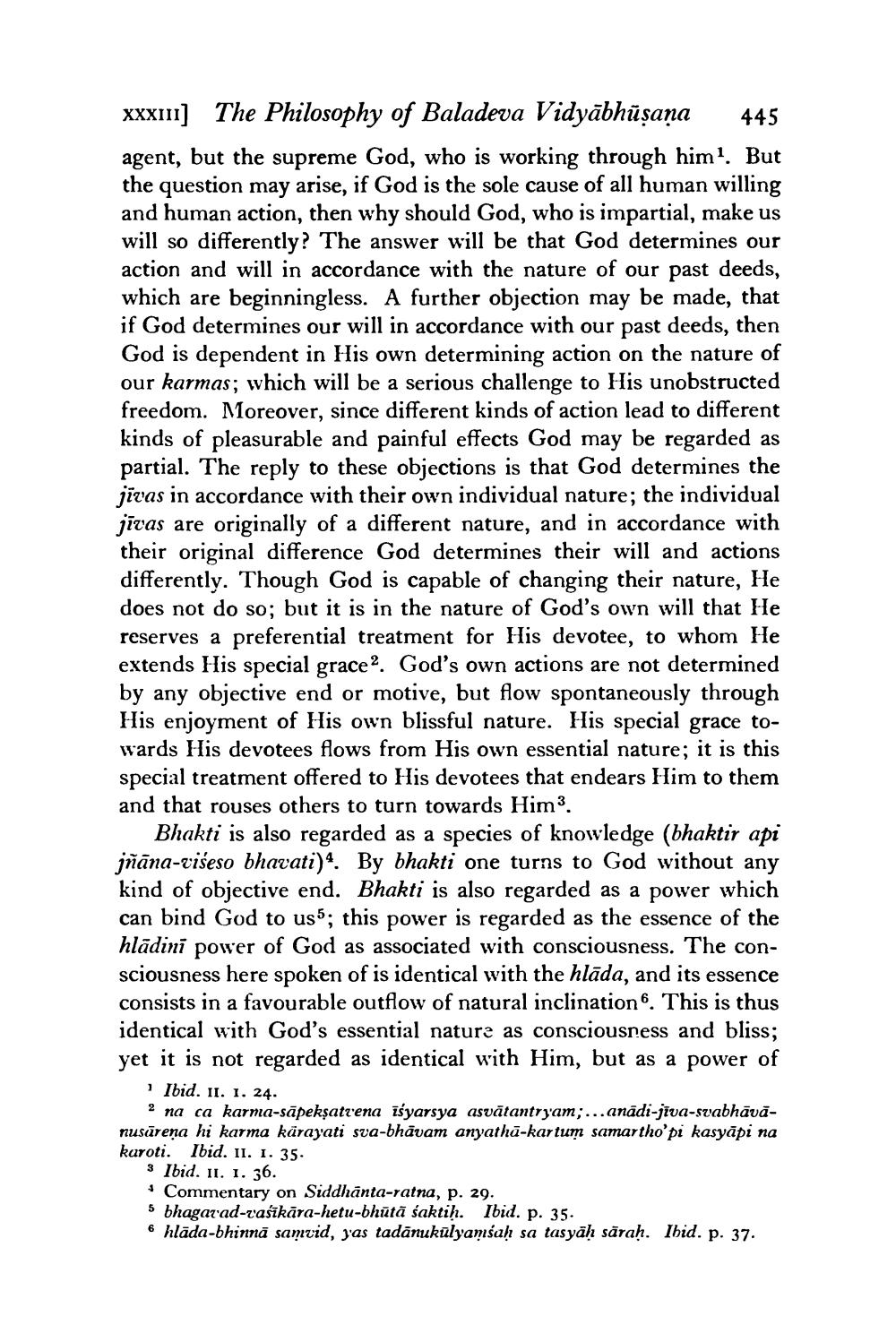________________
XXX111] The Philosophy of Baladeva Vidyābhūṣaṇa 445 agent, but the supreme God, who is working through him?. But the question may arise, if God is the sole cause of all human willing and human action, then why should God, who is impartial, make us will so differently? The answer will be that God determines our action and will in accordance with the nature of our past deeds, which are beginningless. A further objection may be made, that if God determines our will in accordance with our past deeds, then God is dependent in His own determining action on the nature of our karmas; which will be a serious challenge to His unobstructed freedom. Moreover, since different kinds of action lead to different kinds of pleasurable and painful effects God may be regarded as partial. The reply to these objections is that God determines the jivas in accordance with their own individual nature; the individual jīvas are originally of a different nature, and in accordance with their original difference God determines their will and actions differently. Though God is capable of changing their nature, He does not do so; but it is in the nature of God's own will that He reserves a preferential treatment for His devotee, to whom He extends His special grace2 God's own actions are not determined by any objective end or motive, but flow spontaneously through His enjoyment of His own blissful nature. His special grace towards His devotees flows from His own essential nature; it is this special treatment offered to His devotees that endears Him to them and that rouses others to turn towards Him3.
Bhakti is also regarded as a species of knowledge (bhaktir api jñāna-višeso bhavati)4. By bhakti one turns to God without any kind of objective end. Bhakti is also regarded as a power which can bind God to us5; this power is regarded as the essence of the hlādini power of God as associated with consciousness. The consciousness here spoken of is identical with the hlāda, and its essence consists in a favourable outflow of natural inclination 6. This is thus identical with God's essential nature as consciousness and bliss; yet it is not regarded as identical with Him, but as a power of
Ibid. II. 1. 24. 2 na ca karma-sāpekșatiena īsyarsya asvatantryam;...anādi-jiva-svabhāvānusāreņa hi karma kārayati sva-bhāvam anyathā-kartum samartho'pi kasyāpi na karoti. Ibid. II. I. 35.
3 Ibid. il. I. 36. - Commentary on Siddhanta-ratna, p. 29. s bhagavad-vašīkāra-hetu-bhūtā saktih. Ibid. p. 35. 6 hlāda-bhinnā samvid, yas tadānukulyamsah sa tasyāḥ sāraḥ. Ibid. p. 37.




